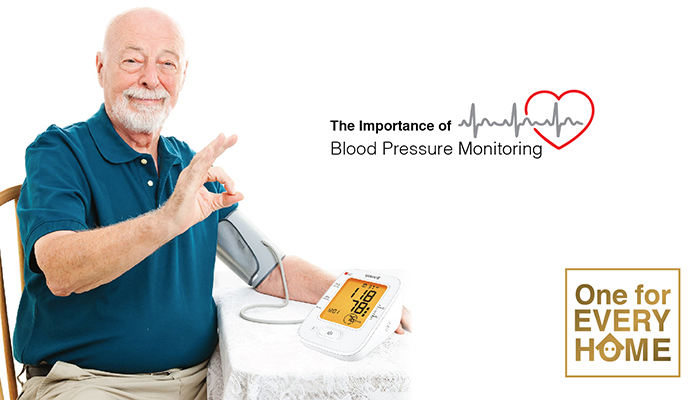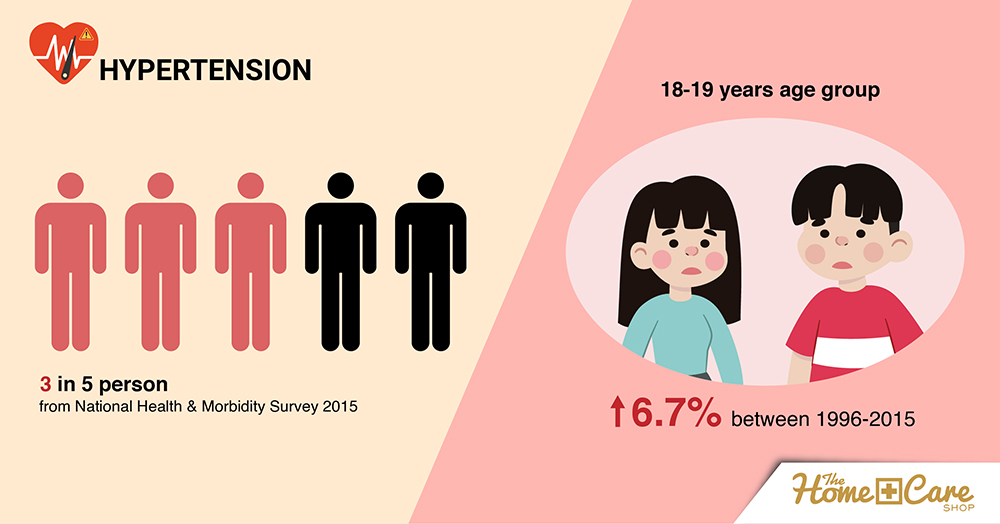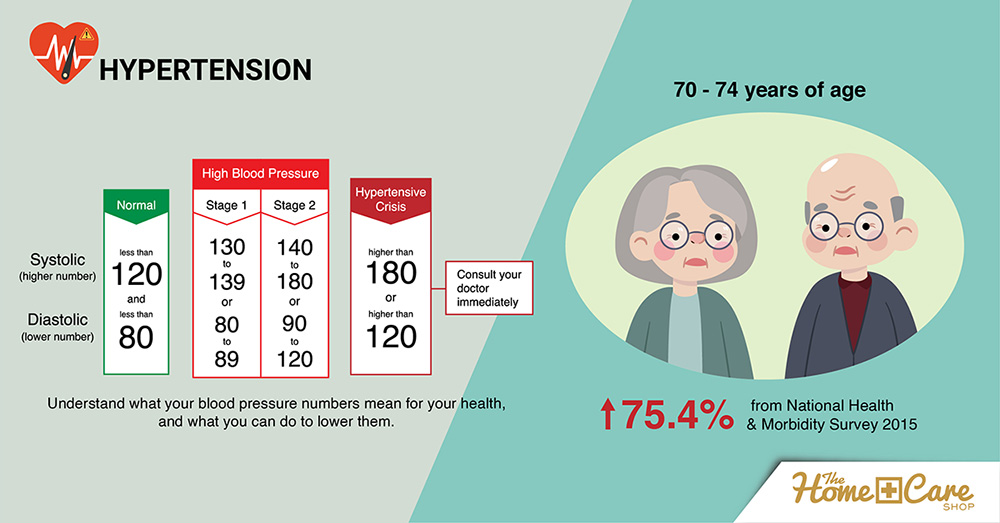The Importance of Blood Pressure Monitoring

Hypertension in adults, 18 years and above, was 30.3% (diagnosed and undiagnosed). In the age group of 18-19 years age group, the prevalence increased 6.7% between 1996-2015. On top of that, there are many people who are unaware that they even have hypertension. For every 2 persons diagnosed with hypertension there are 3 undiagnosed. (Source: Institute for Public Health 2015. NHMS 2015. Vol. II: Non-Communicable Diseases, Risk Factors & Other Health Problems; 2015). Now, let us get into why it is important to monitor your blood pressure on a daily basis.

Eliminate “white coat hypertension”
“White coat hypertension” occurs when blood pressure readings are higher at a medical setting compared to other settings like your home. The anxiety we feel in a medical setting temporarily increases blood pressure readings which do not tell the real story of our health condition.
Early detection of hypertension
By monitoring our blood pressure daily, we would be able to have a clearer picture of what our health condition really looks like and it will even help in detecting early onset of hypertension. Thus, we would seek out early treatment if needed to manage the hypertension be it through medication, a change of lifestyle or both. Remember, hypertension is a condition that can be managed and treated when detected and diagnosed.
Monitor the effects of recent medication change
Daily blood pressure monitoring allows us to create a baseline which will then provide useful information regarding treatment outcomes by comparing and contrasting the results. It will also allow us to share this information with our doctor to effectively adjust our drug dosage as needed and help develop a treatment program that is right for us as well as address any concerns.
Blood pressure monitoring habits should not be limited to adults but to the elderly as well and especially so. In the elderly, 70-74 years of age have an increased prevalence of hypertension by 75.4%. (Source: Institute for Public Health 2015. NHMS 2015. Vol. II: Non-Communicable Diseases, Risk Factors & Other Health Problems; 2015). On top of the reasons given above, another main reason why the elderly should check their blood pressure regularly is for the following reason.

To help reduce risks of falls
Many elderly experience a drop in their blood pressure when they sit or stand up which causes lightheadedness and dizziness that may result in instability and ultimately, falls. This is especially true if they are taking medication to lower their blood pressure. Hence, it is imperative to take their sitting and standing blood pressure to ensure their safety.

